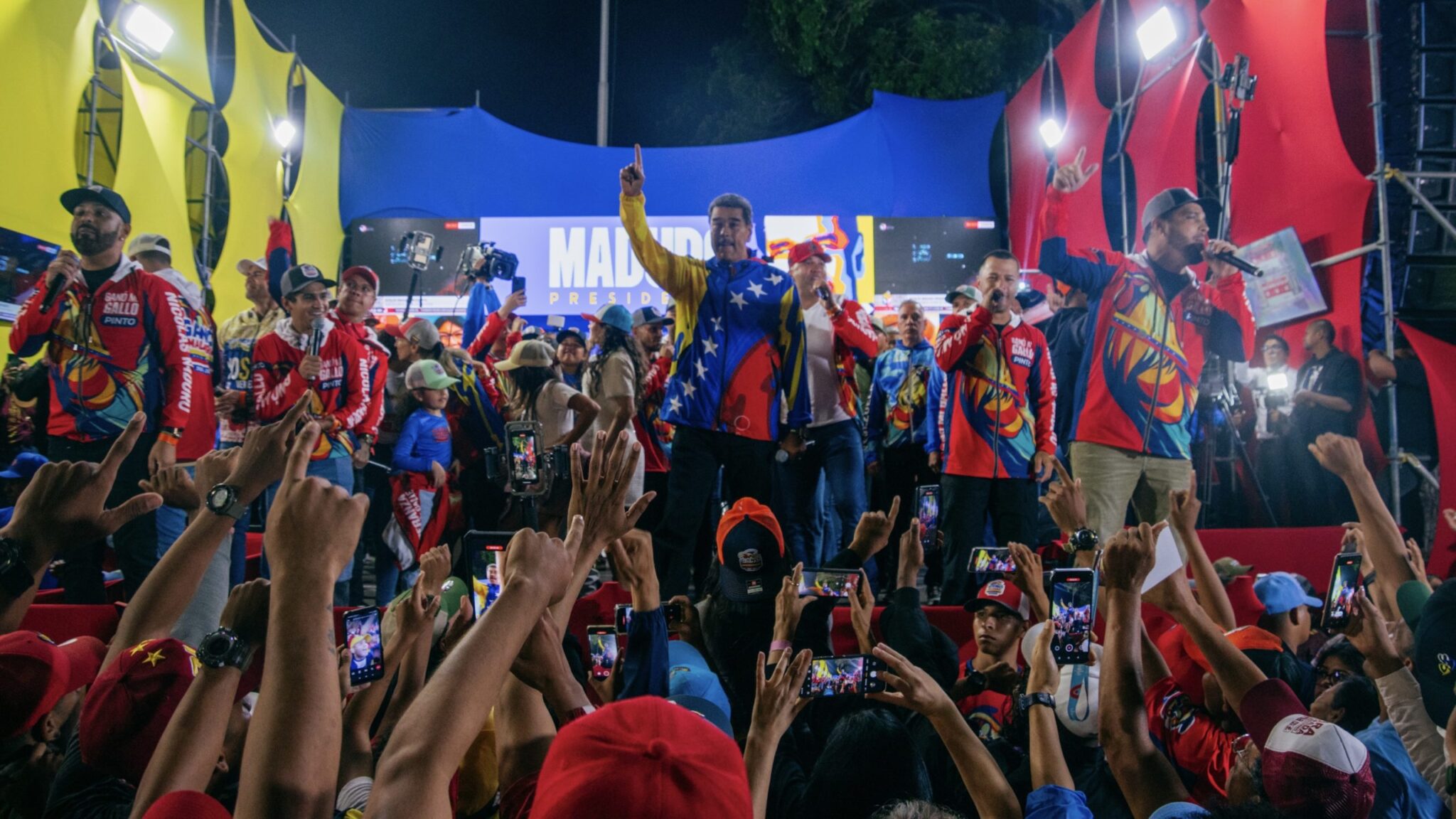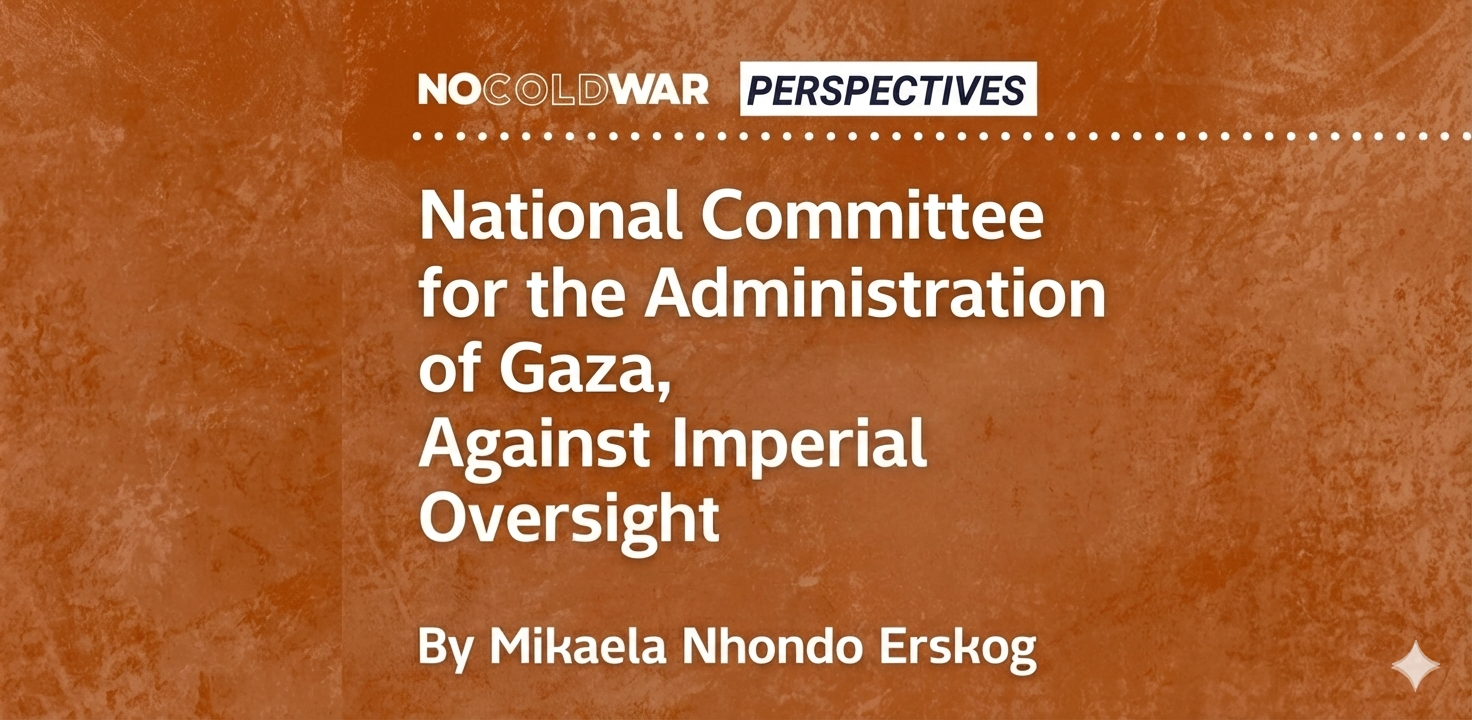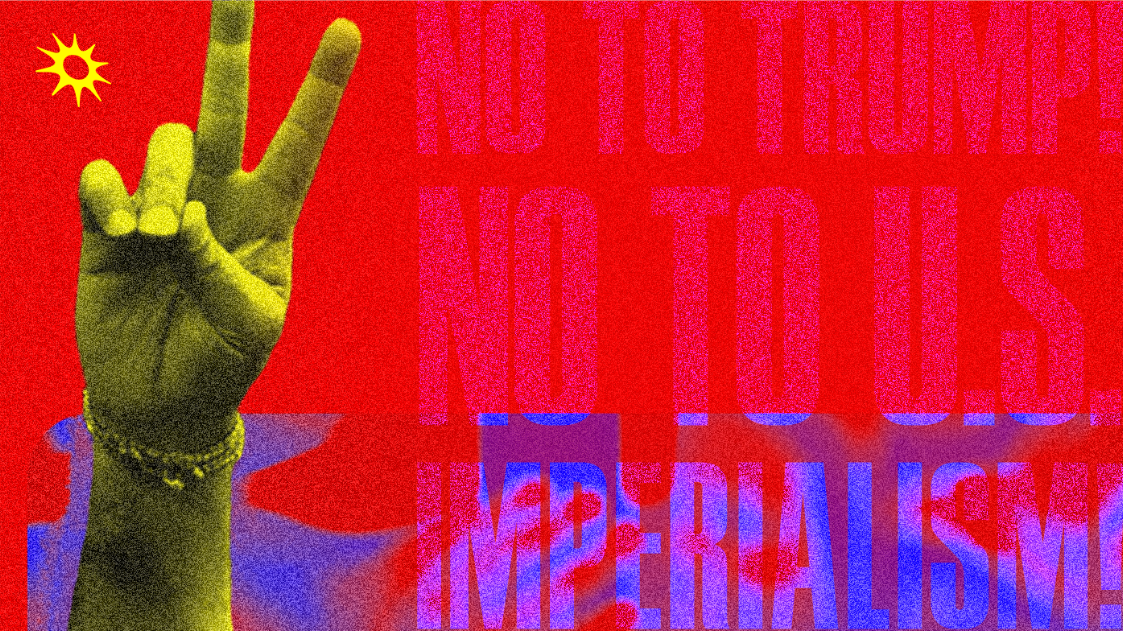What’s at stake with Maduro’s inauguration in Venezuela
By Stephanie Weatherbee Brito and Vivian Neves Fernandes*, published at Peoples Dispatch.
January 10 is a crucial day for Venezuela: the inauguration of Nicolás Maduro as President, after having been re-elected with 52% of the votes on July 28. This act not only marks the continuity of the Bolivarian Revolution, but also reflects the commitment of the Venezuelan people to the construction of a socialist model and in resistance to the aggression of US imperialism and the oligarchic elites.
The Venezuelan reactionary sectors, supported by the US and its allies, have tried to destabilize the country on multiple occasions and once again now, with the defeated candidate Edmundo González self-proclaiming himself the winner and declaring that he will take office as president on the 10th. The opposition is also calling for acts of violence in the streets and even calling on sectors of the armed forces to rebel (which was promptly rejected).
As it has been doing for the last 25 years, since the triumph of Comandante Hugo Chávez, the right wing and the ultra-right, today led by González and former congresswoman and representative of the local oligarchy María Corina Machado, seek to foment violence and chaos, promoting a scenario for attempts of foreign (read US) intervention.
However, the brave Venezuelan people and its institutions have resisted firmly, defending their sovereignty and democracy. Venezuela is not alone either, around the world, social organizations, people’s movements, political parties, and trade unions support and stand in solidarity with the Bolivarian Revolution. On the coming 10th it is once again essential that globally we demonstrate our solidarity and admiration for the Venezuelan people through messages on social networks and public statements from our organizations and movements.

Nicolás Maduro greets thousands of supporters outside of MIraflores Palace on July 28. Photo: Zoe Alexandra
Attacks from the ultra-right and US imperialism
The Venezuelan resistance is taking place in a context of constant aggressions by the United States and its allies. The more than 950 illegal sanctions imposed against the country have drastically reduced national income, causing a devastating impact in key areas such as health, education and public services. These measures seek to weaken the Bolivarian Revolution, generate despair among the population and encourage a regime change favorable to imperialist interests.
What is happening now in Venezuela is not happening for the first time. Let us not forget the episode of the 2013 elections, when Henrique Capriles denounced electoral fraud, sought to delegitimize the results and called for widespread acts of violence, known as “guarimbas”. Also noteworthy was the self-proclamation of Juan Guaidó as President of the Republic in 2019, when he assumed the presidency of the National Assembly (at that time the Assembly was in contempt of court and non functional) following the dictates of the US. After this, the US took the opportunity to apply even more sanctions that caused losses of one billion dollars for the country and a shameful situation for those countries and leaders who recognized the puppet Guaidó and his “fantasy government”.
Added to the economic aggressions is the direct support of US imperialism to oligarchic and ultra-right sectors within Venezuela. These groups have not only promoted disinformation campaigns to criminalize Chavismo, but have also resorted to physical violence, including coup attempts and acts of economic sabotage. Despite this, the Venezuelan economy has shown signs of recovery, with a projected growth of 6.2% in 2024, according to ECLAC, thanks to self-sufficiency and productive diversification policies promoted by the government.
Venezuela and its place in the struggle for socialism
Since the beginning of the Bolivarian Revolution, Venezuela has been a reference for peoples movements in Latin America and the world. The project initiated by Hugo Chávez not only challenged the structures of global economic, and political domination, but also offered an alternative path based on sovereignty, social justice and popular and protagonist democracy. In an international context dominated by predatory capitalism, Venezuela has shown that it is possible to build a different model, focused on the welfare of the people, regional articulation and cooperation among nations.
The Plan of the Homeland (government program built through popular assemblies throughout the country), initiated by Chávez and currently led by Maduro, consolidates these ideals by deepening territorial socialism from the communes. This approach not only seeks to reorganize the economy around principles of self-management and social property, but also strengthens the participation of the people in the planning and execution of public policies. The communes, as the nucleus of popular power, are the engine for the construction of a sovereign economy based in solidarity, evidencing that Venezuelan socialism continues to innovate in its transforming process.
Popular support for Nicolás Maduro and the Bolivarian Revolution
One of the fundamental pillars of the Bolivarian Revolution is the massive support of the popular base and the organized social movement. In the last 25 years, Venezuela has carried out 30 electoral processes, in which Chavismo has been victorious in most of them, but it has also had some defeats. In the last election, the presidential election of July 28, 2024, more than 6.4 million Venezuelans ratified their support to Maduro at the polls, despite the opposition’s attempts to delegitimize the electoral process.
Since then, the people have continued to mobilize in defense of the revolutionary project. In numerous marches and rallies, Venezuelans have made it clear that Chavismo continues to be a living and active political force. These mobilizations are not only a response to external aggressions, but also a reaffirmation of the collective commitment to the Bolivarian Revolution.
At this stage, Maduro has been emphatic in the need to make profound changes in public management and in the fight against corruption. He has prioritized the strengthening of the communes and has promoted an economic model focused on self-sufficiency and sovereignty. These efforts have begun to bear fruit, with the economy showing signs of recovery and a growing confidence in the people’s ability to manage their destiny.
On January 10, the streets of Venezuela will be filled with men and women committed to the defense of their sovereignty and the continuity of the Bolivarian Revolution. In short, what is at stake in Venezuela is much more than a presidency: it is the future of a revolutionary project that continues to be a beacon of dignity, social justice and hope for the peoples of the world.
*Stephanie Weatherbee Brito is coordinator of the Operative International Secretariat and Vivian Neves Fernandes is Coordinator of the Communications Team of the IPA.


